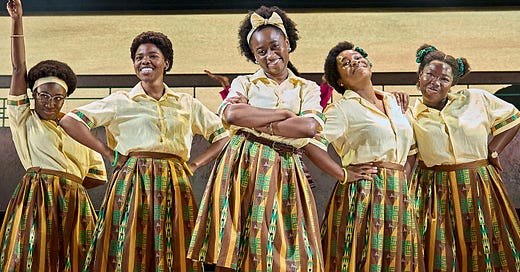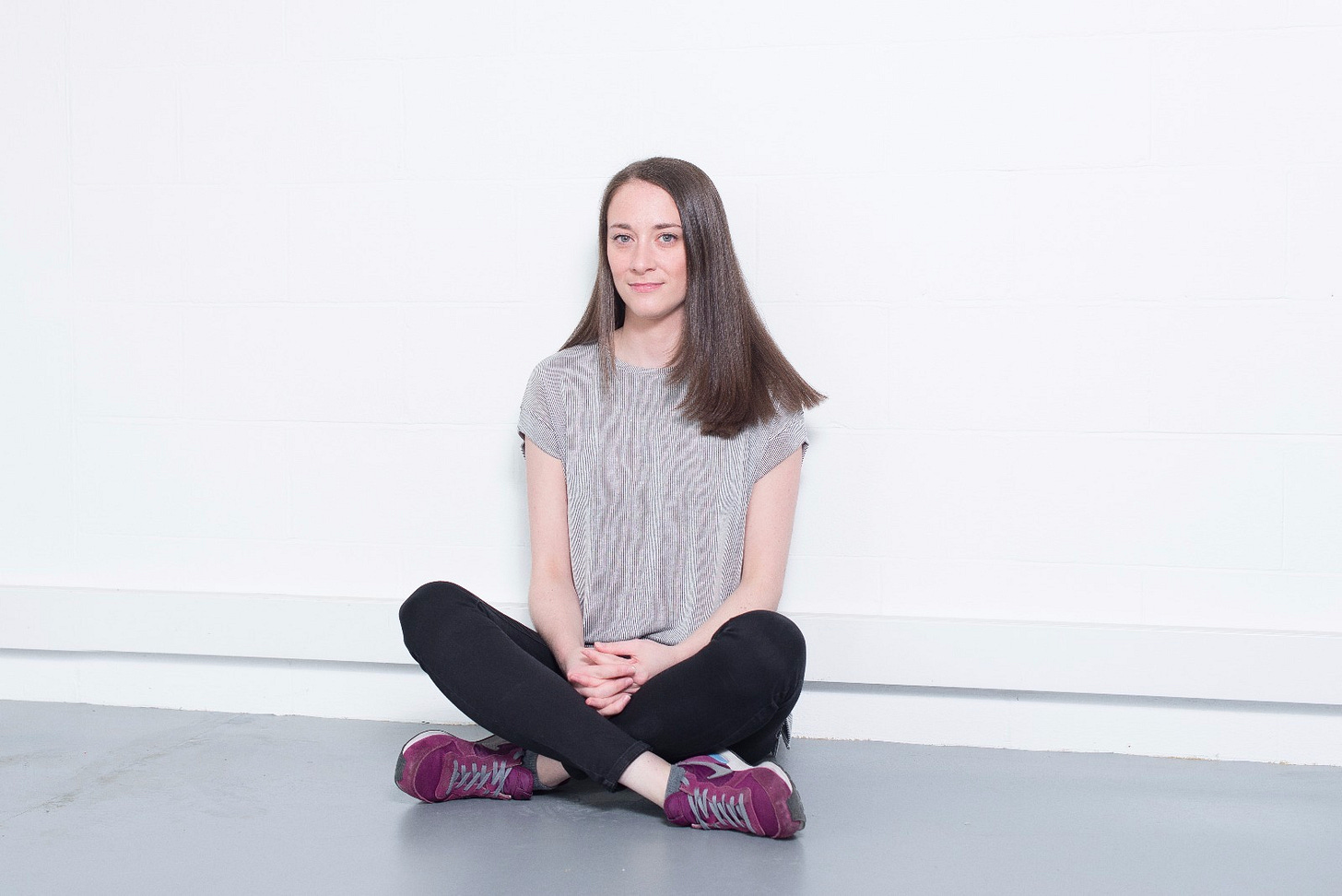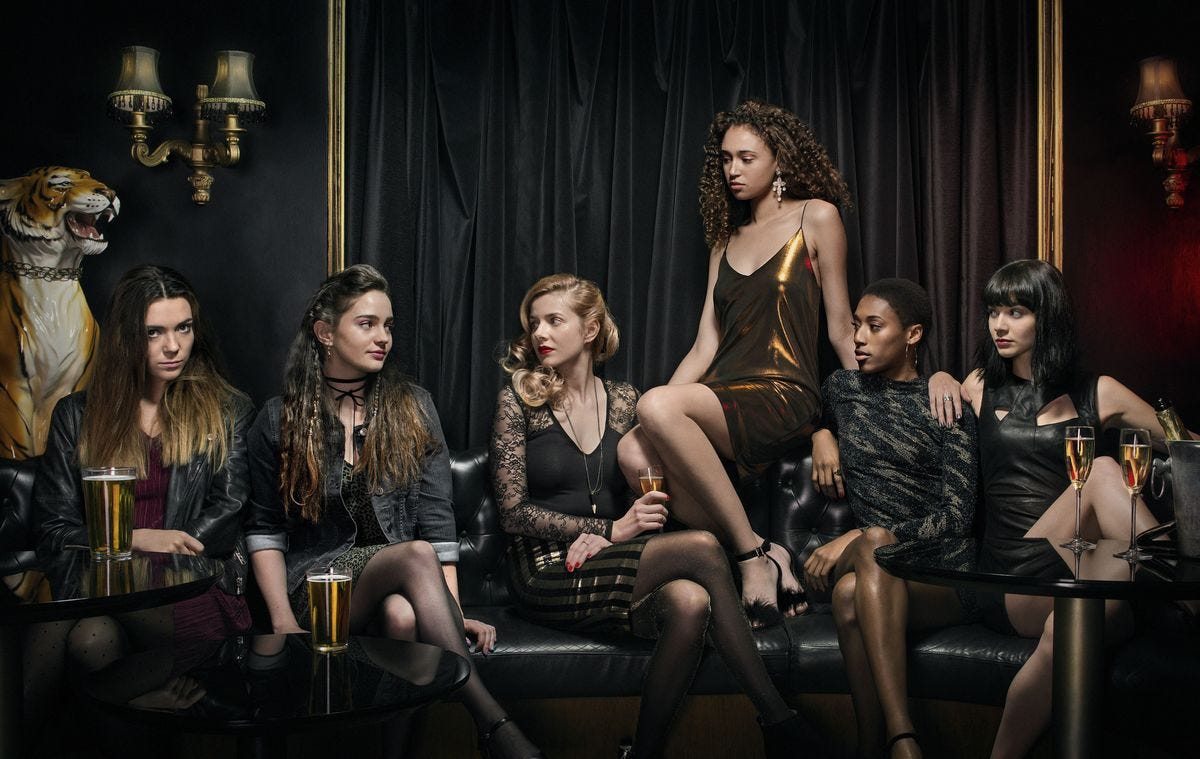The Companion 007: Mean Girls (and boys)
This week I was walking through the park when I witnessed something awful and surprisingly familiar. Plus, an interview with screenwriter Jess Brittain!
Do you ever have those moments where you're transported, in a gleaming instant, back to feelings from your past? Sometimes, when I'm walking past groups of teenagers, giggling and jousting at each other, socks rolled down and skirts pulled up, I forget myself. I am, once again, hot and heavy and praying to be ignored by people who have the means to tear me down. To shred my shaky self-confidence with a single, audible whisper.
And then, beautifully, an instant later, I remember myself. I remember that they can't hurt me. That I am grown now. What a relief to be embodied, to have found confidence, to simply no longer care.
This week I was walking through my local park, forcing myself out on one of those freelance walks that are never as long as they should be, when three young girls came into earshot. Dressed in their uniform, messy after the completion of a school day, linking arms and parting like waves coming back to shore. They were sixteen or so and were loudly, chaotically doing something I remember doing too: being in the same vicinity as boys who we sort of found interesting and wanted some kind of interaction with.
But, as it turned out, they were playing with fire.
The group of boys turned up, just around the corner, shirts flapping, swaggering. One of them yelled something about how he didn't do anything, it was another boy, I swear, he said. The girls swayed back in together, whispering, eyes flicking. The boys moved further away from them, a few of them screaming for no real reason other than to make noise. But then the boy who said he didn't do anything, did something.
“Savannah is a big fat ugly whore,” he said at the top of his lungs. “A big fat ugly whore!” Laughter. The girls, further away from me too now and separated, uncomfortable.
“There is truth in the brutality of teenage friendships”
This week I went to see School Girls; The African Mean Girls play, currently showing at Lyric Hammersmith. In it, one of the characters, Paulina, says awful, practically unforgivable things to her friends. A reviewer for the Evening Standard wrote that they questioned “the outright, unfiltered cruelty of the friends”. But to me, there was truth in the brutality. The things boys said to us were bad. Sometimes the things we said to and about each other were worse. We compounded our suffering. It was always better to be a girl who was liked by the boys than a girl who was targeted by them.
I really felt for Savannah. I imagine that she rolled her shoulders and let the words fly away from her. Because taking things too seriously as a teenager is an offence in itself. But I wonder if they pierced her consciousness. I wonder if the boy will even remember saying them. I wonder if she will remember. I hope that her friends had her back. But from how they all isolated themselves from each other after the words were shouted, it's hard to be sure.
The play though, was hilarious and worth a watch. While I felt like some of the ways in which it handled colourism, identity and black beauty standards were a little clunky, the main black British actresses (Tara Tijani, Jadesola Odunjo, Heather Agyepong, Bola Akeju, Francesca Amewudah-Rivers) were incredible. Grab a ticket here.
Jess Brittain: “Mid-30s can feel like a crisis point for female friendship”
A few weeks ago I had the immense pleasure of interviewing the brilliant screenwriter Jess Brittain for my Stylist column on the formation of cliques in adulthood (if you haven’t read it yet, catch up here).
Jess, who is the creator of the BBC Three show Clique and was a writer on Skins, is warm, understated and unpretentious. She thinks deeply about the world but filters it through a clear lens. I loved speaking to her about why friendship is her field of obsession, navigating parenthood, and her upcoming projects.
What drew you to focus on friendship in your work?
Jess: It's definitely my field of obsession. It’s most women’s, right? Female friendship is the big doozy one of your childhood and young adulthood. And then just ever after, I'm presuming.
Do you feel like you've had fewer intense friendships as you've moved into your 30s?
Jess: I think we just find different places for that intensity, don’t we? When I was describing the breakdowns of my teenage relationships to a therapist she eventually pointed out that I would talk about them as if I had been through a breakup. That probably was how I saw female friendship as a young girl.
Is it fair that some of your writing around friendship has leant towards the dark?
Jess: Absolutely. Looking back at Clique, it's all very heightened, it's a thriller. It is brutal, not being a successful ‘girl group’ person. University was shit for me. It was a constant performance of being a good, interesting and fun enough person for people to want to be friends with me. At the time, it felt very defining of my personality. Now, with the benefit of over a decade, I can look back and think, ‘Oh, my God, it's just not a big deal.’ I ran out of steam to perform. And I do think that's being reflected culturally in terms of, say, Yellow Jackets (2021). They do a really good job of not using traditional girl gang tropes. They feel a bit more relatable.
Where do you feel like that leaves you today?
Jess: So, I had a baby a year and a half ago, and I've just entered my mid-30s, which feels like another crisis point for female friendship. Not to be negative, because I have wonderful, beautiful female friends who exist outside of that tension, but it's funny how life just supplants a new set of things that sets women in competition with each other. The big thing in your 30s is children or no children. I don't think there's anyone who is having a wholly, wonderful, correct, lovely time about it. It’s definitely proving as triggering and contentious as the teen idea of being in the cool gang.
How do you find yourself navigating that?
Jess: It's interesting you ask that because I've been wholly in baby land, mum land for a while now. You make these insanely intense connections with other women who are having babies at the same time. Women that you have no history with suddenly become your be-all and end-all, Ride or Die women. I think most new mums would be lying if they claim to really continue to think about and reach out to their friends without children. The dynamics at play across those different types of life situations are so difficult to transcend. We've all got our own little thing that we're feeling hard done by about.
There's an app called Peanut which you can use to meet other pregnant women. I downloaded it when I was pregnant. Despite at that point having been somebody who was much more level-headed about friendship, I just immediately had a nervous breakdown. I was in this pit of insecurity. I fully panicked and deleted it. Instead, I made friends via an antenatal class. I'm not somebody who makes new friends very easily, so it’s been lovely for me to make new friends with the help of this weird, crazy situation.
Do you feel like any of these new themes in your life will enter into the projects you're working on?
Jess: When you become a mother, which makes it sound grand in a way that I don't mean, it just permeates absolutely everything. Which is why it can be quite isolating. It’s probably not a very feminist thing to say, but for a while, it’s difficult to separate your original self from your mother self. It’s definitely bled into the work. I’m preoccupied with that state of being, but it does just feel like a continuation of a conversation in a way, because loneliness and outsider-ness, is very much the theme of Clique. They’re the big terrors, dangers, and repercussions of motherhood as well.
You said in the past that you didn't see a huge amount of female friendship, on TV growing up. But do you think that has changed?
Jess: I think there's there's way more now that's recognizable, definitely. And different types of female friendship. The intense American young people influence has diversified a tiny bit. There's just a lot more variety. I was thinking the other day, though, that there was this huge upswing, maybe off the back of things like Booksmart (2019), where oddball friendship was celebrated, which is so great. So there are the beautiful cool clique girls over there. Then there are the fiercely, clever, funny, Freaks and Geeks (1999) friendships over there. And if you're somewhere in the middle, there isn’t much. Maybe it’s not interesting TV.
Are there any projects you're working on at the moment you can speak about?
I've loved getting back into work. It's weird because so much of my time is taken elsewhere. It could be seen as a hindrance, but it's actually been quite freeing. I don't really have time to turn in circles or worry about things.
I’m working with the author Juno Dawson on an adaptation of her book trilogy, Her Majesty’s Royal Coven. That's in the very early stages, but really exciting. I have another project, a thriller, and we're just waiting to hear if it will go or not. It surrounds a very famous mommy vlogger who has a dark secret. That's been fun because I started writing it before I was a mum. And then just a nice Scandi thriller, which is actually set at a boarding school. That's been quite fun to go back to a little bit of Clique, in terms of looking at the ways we torture each other when we're at school.
Quickfire:
What is the best thing you've read, listened to, or watched on friendship recently? The Let Down on Netflix.
How do you sort of think the culture of friendship is changing or will change in the near future? People have stopped trying to be so cool.
What has been your biggest learning about friendship? That they don't have to be the love story of your life, for them to be wonderful and important. Good enough friendship, friendship that comes and goes, friendship that sometimes turns up but can't always, is still wonderful.
Thank you so much, Jess!






